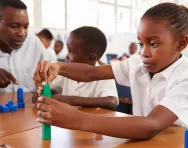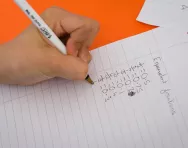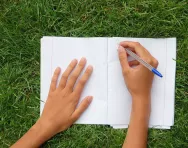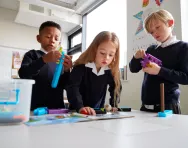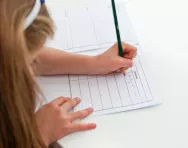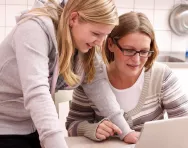Important update from TheSchoolRun
For the past 13 years, TheSchoolRun has been run by a small team of mums working from home, dedicated to providing quality educational resources to primary school parents. Unfortunately, rising supplier costs and falling revenue have made it impossible for us to continue operating, and we’ve had to make the difficult decision to close. The good news: We’ve arranged for another educational provider to take over many of our resources. These will be hosted on a new portal, where the content will be updated and expanded to support your child’s learning.
What this means for subscribers:
- Your subscription is still active, and for now, you can keep using the website as normal — just log in with your usual details to access all our articles and resources*.
- In a few months, all resources will move to the new portal. You’ll continue to have access there until your subscription ends. We’ll send you full details nearer the time.
- As a thank you for your support, we’ll also be sending you 16 primary school eBooks (worth £108.84) to download and keep.
A few changes to be aware of:
- The Learning Journey weekly email has ended, but your child’s plan will still be updated on your dashboard each Monday. Just log in to see the recommended worksheets.
- The 11+ weekly emails have now ended. We sent you all the remaining emails in the series at the end of March — please check your inbox (and spam folder) if you haven’t seen them. You can also follow the full programme here: 11+ Learning Journey.
If you have any questions, please contact us at [email protected]. Thank you for being part of our journey it’s been a privilege to support your family’s learning.
*If you need to reset your password, it will still work as usual. Please check your spam folder if the reset email doesn’t appear in your inbox.
Skills your child needs for moving to Key Stage 2

The transition from KS1 to KS2 can be a big step for children. Some face moving from an infants school to a junior or middle school; others remain on the same site but have to get used to a new classroom, building or playground.
In addition to the physical move, there are a number of new skills that children need in KS2. They won’t be expected to master all of them at once; their teacher will break them in gently over the first few weeks of term. But a helping hand at home can make the transition much easier for your child.
KS2 skill: going into school independently
Unlike in KS1, where you probably supervised your child until the moment they went into school, in KS2 it’s more common for children to be dropped in the playground and then line up and go into school by themselves when the whistle blows.
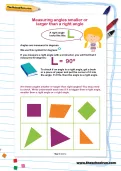
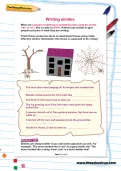
Start the Year 3 Learning Programme!
- Weekly maths & English worksheets direct to your inbox
- Follows the National Curriculum
- Keeps your child's learning on track
How you can help: If your child is anxious about being dropped off, encourage them to find a friend they can stay with until it’s time to go into the classroom. It’s also worth making your child’s teacher aware of their worries so they can make sure they’re not left floundering in the playground.
‘My daughter has selective mutism, so to help her anxiety about going back to school, her teacher laminated a list of all the things she likes and is looking forward to doing in Year 3,’ says Jennifer Berry, mum to Jessica, seven. ‘We’ve talked about it all summer and it’s helped to calm her nerves.’
KS2 skill: working in a group
In KS1, group work is typically closely supervised by a teacher or TA. But in KS2, children are expected to be more independent when working in groups. This involves a whole raft of new skills, such as listening to each other, explaining ideas clearly, taking turns, helping others, allowing everyone to contribute, and pulling the group’s ideas together into the end product.
How you can help: Look for opportunities to practise group work at home, such as baking a cake together, with one person reading the recipe and the other weighing out the ingredients, or collaborating with siblings or friends on making a LEGO model.
KS2 skill: managing homework
The volume of homework usually steps up in Year 3. It’s up to schools to decide how much they set, but it’s normal for children to get an English task and a maths task each week, plus reading, spellings and times tables practice. They’ll be expected to manage their time to make sure their work is handed in on time, and to work independently.
How you can help: Check your child’s homework diary regularly, and encourage them to decide when they want to do their work: would they rather get it out of the way as soon as they get home, or do it later when they’ve had a chance to relax?
Be available to help with homework, but avoid hovering over your child while they’re doing it: it’s important that they learn to work independently, and that the work they hand in is their own.
‘I prepare healthy snacks, like milk and flapjacks, to have on the table, and encourage the kids to sit, eat and get their homework done as soon as they get home,’ says Claire Gilchrist, mum to Emma, eight, and Tom, six.
KS2 skill: organisation
Children in KS2 are expected to take more responsibility for organising themselves, for example by remembering to bring their reading books and PE kit to school on the relevant days. It’s also common for teachers to expect children to pass on messages from school themselves, rather than sending letters home.
How you can help: Get your child into the habit of unpacking and repacking their school bag themselves the evening before. Prompt them to pass on messages by asking them regularly if there’s anything you need to know. Children are usually expected to write these in their jotter or homework diary, so check it at least once a week to make sure you don’t miss anything.
KS2 skill: independent work
There’s a lot less hand-holding in KS2, with children being expected to work independently and try to solve problems themselves rather than needing the teacher to point them in the right direction.
How you can help: There are lots of ways to build your child’s independence at home, for example by giving them some household responsibilities. If they’re stuck on a homework task, don’t step in with the solution; instead, encourage them to work it out themselves by asking questions such as, ‘Where do you think you could look for help with this?’ or, ‘Can you come up with three possible solutions, then decide which one would be best?’
KS2 skill: concentration
Being able to concentrate for longer periods goes hand-in-hand with the ability to work independently. In KS2, children need to get used to staying on task for increasing lengths of time, maintaining their focus and avoiding distracting other kids.
How you can help: A good night’s sleep and a decent breakfast before school are vital to kids’ concentration, and they need to be well hydrated, too, so provide a water bottle for them to keep on their desk (with the teacher’s permission).
You can also improve their concentration skills by playing family games that involve focusing on the task in hand, such as Scrabble, Bananagrams and chess.
‘My son struggled with focusing on his work when he started KS2,’ says Judy Rowley, mum to Lewis, 10. ‘His teacher helped a lot by repeating instructions, and kept communication open with me so we could work together to help him.’
KS2 skill: extended writing
In KS1, a lot of time is spent completing worksheets, but in KS2, open-ended tasks become more common. Children are expected to be able to write at greater length and to develop their writing by using more sophisticated sentence structures and a range of grammar.
How you can help: Encourage your child’s communication skills by making plenty of time to talk as a family, such as over the dinner table. Give them lots of experiences to inform their writing, such as visiting farms, beaches, the countryside and museums: it’s easiest to write about what we know. Keeping a diary is another great way to practise writing.
KS2 skill: coping with playtimes
In many schools, KS2 children use a different playground, which can take some getting used to. Their play is generally more independent, unlike in previous years, where play leaders may have organised break time activities. They also typically lose their afternoon playtime in KS2.
How you can help: Many schools have ‘buddy benches’ where children can go if they want someone to play with, so encourage your child to use these if they’re feeling anxious or lonely. Taking a reading book or colouring book to school will give them something to do if they don’t like boisterous play or team sports; most schools have designated areas for quiet activities.
KS2 skill: choosing reading books
At some point in KS2 children usually become ‘free readers’, having finished the school reading scheme. They’ll be expected to choose their own books, either from the school library or the class bookshelf; they may also be allowed to choose a reading book from home.
How you can help: Taking your child to your local public library is a good way to get them used to picking books that tap into their interests. They can then use this skill to choose books at school.
KS2 skill: writing in pen
In KS2, children graduate from writing in pencil to using a pen. Some schools automatically make the switch at the start of the year; in others, children have to earn a ‘pen licence’ by demonstrating that their handwriting is good enough.
How you can help: Practice makes perfect, so spending some time helping your child with handwriting exercises will help them make the transition from pencil to pen. It’s also a good idea to ask the teacher what sort of pen they’ll be using in school, so you can provide the same type for writing at home.
